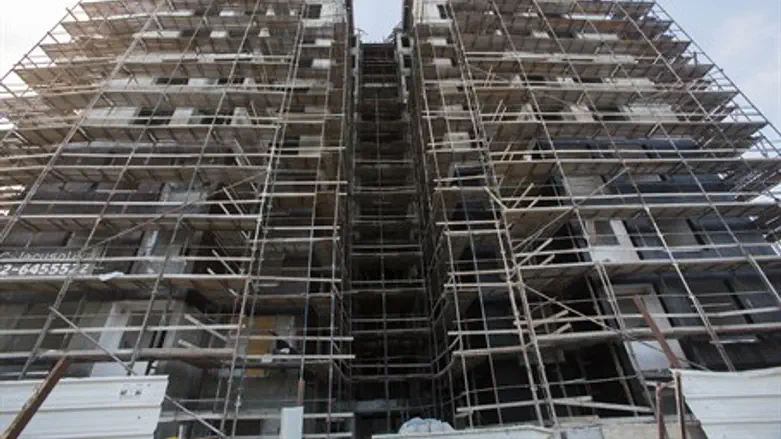
Israel on Thursday published tenders for 283 new housing units in the Samaria community of Elkana, as announced on the website of the Israel Land Authority.
The new units received approval way back in January, and just now have been advanced to the next stage in their planning, reports AFP.
However, there has been recent widespread criticism from leaders in Judea and Samaria over how Prime Minister Binyamin Netanyahu's administration has been quietly instituting a "covert" construction freeze in the region, nipping promised housing units in the bud before the plans come to fruition.
That criticism comes after it was revealed on Monday that Netanyahu cancelled 2,500 building tenders for Jewish neighborhoods in Jerusalem, Judea and Samaria, tenders that he initially approved as a response to the murder of the three Israeli teens Gilad Sha'ar, Naftali Frenkel and Eyal Yifrah hy''d.
Reportedly Netanyahu's reneging of his decision came as a result of international pressure, which was demonstrated yet again on Sunday when Israel declared 4,000 dunams of empty land in Judea as state land, promptly drawing harsh international condemnation.
At the fore of the international push against Jewish houses being built in the biblical heartland of Israel was America.
The US Ambassador to the UN, Samantha Power, said Wednesday that Washington is “deeply concerned" by the announcement, and called "on the Government of Israel to reverse its decision."
Many have argued that the solution is for Netanyahu to adopt the 2012 Levy report that he commissioned, which proved how Israel's presence in Judea and Samaria is completely legal under international law.
Proponents of building argue that by doing so, and proceeding to build freely, construction would turn into a normal occurrence that would not cause an international outcry.
It should be noted that Israel is currently suffering from a housing crisis; Judea and Samaria, a region that reportedly over 90% of which remains unpopulated, has been presented as a solution to Israel's strapped housing needs.